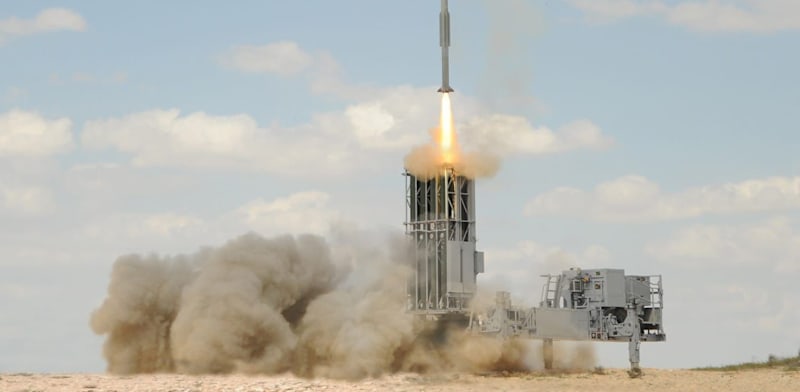ARTICLE AD BOX
Israel's car market may be tiny, but it's an excellent test case for Tesla's ability to recover market share as rival brands pour in.
This month, electric vehicle maker Tesla joined the small, prestigious trillion club, the companies with market caps of over $1 trillion. That valuation, however, has no direct connection to Tesla’s regular activity in the vehicles market. In the first nine months of this year, Tesla sold 1.293 million vehicles. In the same period, Volkswagen sold 6.5 million vehicles, but its market cap is $46 billion. BYD, which delivered 2.75 million electric vehicles during the period, has a market cap of $109 billion.
The jump in Tesla’s market cap mainly reflects investors’ expectations of a direct or indirect profit to the company from its co-founder and CEO Elon Musk’s investment in Donald Trump’s winning presidential campaign in the US.
Politics aside, in order to gauge what the future holds for Tesla in the global automobile market, an examination of its performance in Israel is a good place to start.
Diminishing market share
The Israeli automobile market may be tiny by global standards, but in many ways it’s an important test market for Tesla, since it’s an imports market, freely open to electric vehicles from anywhere in the world, with no regulatory discrimination or political or nationalistic preferences on the part of customers.
This is unlike the situation in the US, which today places significant trade barriers in the way of foreign electric vehicle manufacturers, particularly Chinese manufacturers. It is also unlike the situation in China and Korea, where customers avoid foreign-made vehicles; and it is unlike the situation in the EU, which this month imposed high tariffs on electric vehicles imported from China, except for the Tesla Model 3, which is made in China, but was treated with silk gloves.
Tesla does have an advantage in Israel, as the only manufacturer with direct marketing, cutting out dealers’ percentages, but it still has to compete against more than twenty vehicle brands imported from all over the world, among them many Chinese brands that compete with it directly both on positioning of their models and on price.
Against this competition, Tesla’s sales performance is far from what might have been expected from the world’s most prestigious brand. In 2021, when Tesla broke into the Israeli market, it took a market share of more than 60% of the electric vehicle segment in the country. A year later, its market share was slashed to 23%, although that was partly because of the microchips shortage that hit global production and led to a very limited allocation of vehicles to Israel, and a sharp price rise, which hurt deliveries. In 2023, the company made something of a comeback in sales, but its market share fell to 14%, after a price cut.
In January-October this year, Tesla took just 10% of sales in the Israeli electric vehicle market, despite an unprecedented price cut in early July that brought the prices of its main models back to where they were two years ago.
The decline in Tesla’s market share in Israel can be attributed to several causes, one of them being the company’s limited model offering. Tesla is having to cope with the glass ceiling encountered by manufacturers that try to expand into more prestigious and expensive market segments, but also with a glass floor, that is, a lack of more popular, affordable models in its range.
The company currently has two main model series, both of them with veteran origins in automotive industry terms. It’s true that the company knows how to squeeze the lemon of existing models impressively, with a welter of software updates and technical upgrades, and that the Tesla Y is the best selling electric vehicle of its kind in the world. But in the cheaper and more affordable market segments, the company suffers from competitive inferiority against the Chinese electric vehicles that compete in Israel in the NIS 130,000 to NIS 180,000 price range.
What happened to the cheap model?
This gap was mean to have been closed by Tesla’s "$25,000 model", the launch of which has been postponed time after time. The latest deadline for the launch of the compact and cheap car is 2025, but at an investor conference in October no specific date was given for it, and news agency Reuters recently quoted Elon Musk as saying that launching a cheap model that was not autonomous would be "pointless."
Meanwhile, the Chinese, the Koreans, and the Europeans are conquering the mass, cheap market segments, launching Tesla copycats and planting flags in the upmarket segments where the veteran Tesla X and Tesla Y models now hardly have a presence.
It would appear that the price-cut weapon that the company frequently deploys in order to maintain or increase market share is steadily losing effectiveness. Evidence of that is the speed with which the Chinese models came into line this year with Tesla’s lower prices, and even undercut them.
It is not yet clear how Tesla will respond to the purchase tax hike that will come into force in January. In the past, it has raised prices by the full amount of any tax increase, and then cut them later. If it manages to absorb the tax increase, and it is very doubtful that that will happen, it could benefit from a competitive advantage, if a short-lived one, in January.
Alongside the objective limitations, that derive from the parent company’s product policy, Tesla Israel continues to suffer from its "thin and remote" management strategy. In the vehicle fleets segment, for example, which is of strategic importance in the market, particularly for electric vehicles, Tesla’s presence is negligible. That segment is dominated in Israel by a handful of major players that have longstanding ties with the veteran vehicle marketers. Some of them (Avis, Shlomo Sixt, and others) are directly owned by "traditional" vehicle importers that import electric vehicles.
Tesla Israel did recently inaugurate a new sales and logistics base in central Israel, but with more than 25,000 cars on Israel’s roads it still struggles to match the level of service offered by the veteran importers. To that can be added the lack of stability in the company’s personnel - the national service manager was recently replaced after just a year in the post - and probably much remote management by Tesla’s European headquarters in Amsterdam. Will Tesla come to terms with a single digit market share in Israel? Or will we perhaps yet see strategic moves that will enable it to make a comeback? For the time being, the company has started to offer customers a year’s free charging, which is certainly a hard sell move, one that indicates that the company is coming into line with the ways of the vehicle industry.
Published by Globes, Israel business news - en.globes.co.il - on November 19, 2024.
© Copyright of Globes Publisher Itonut (1983) Ltd., 2024.

 3 months ago
135
3 months ago
135







 English (US) ·
English (US) ·